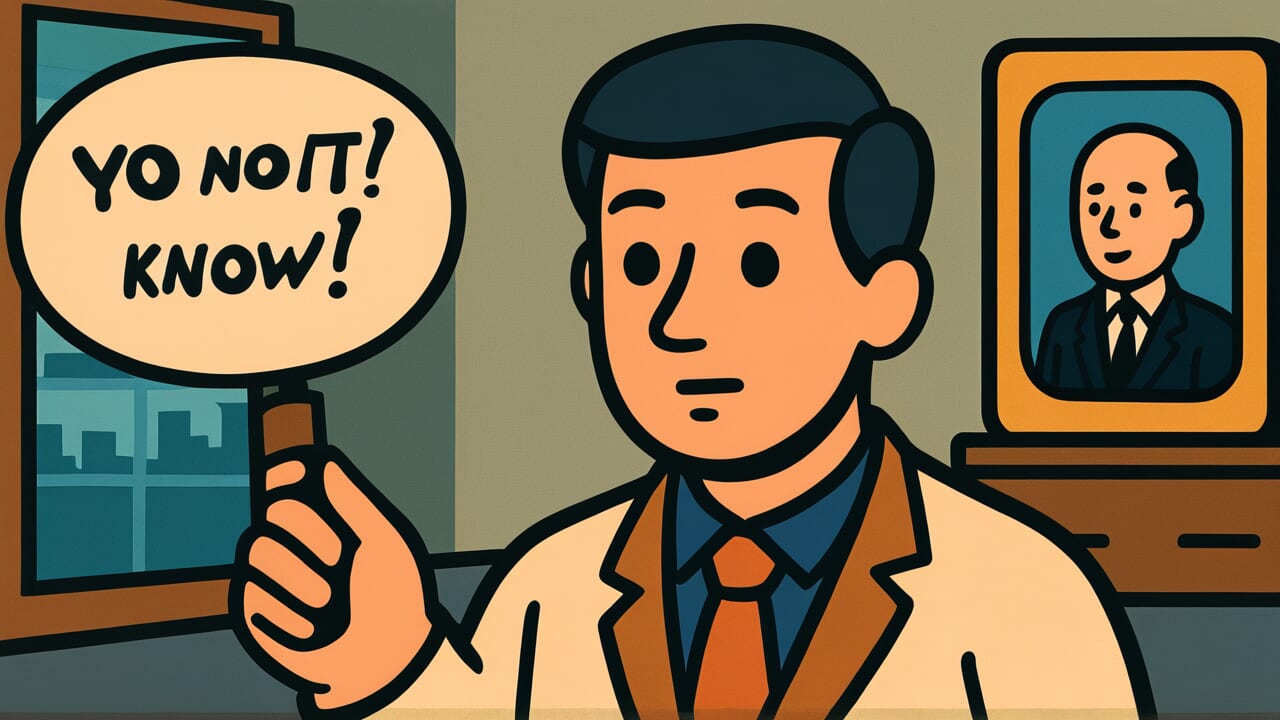How to Read “Know but act as if you don’t know”
Shitte shirazare
Meaning of “Know but act as if you don’t know”
“Know but act as if you don’t know” teaches that people with real knowledge or skills should not show off.
Instead, they should act as if they don’t know. This is not just about being modest. It shows how truly wise people should behave.
This proverb is used to warn people who show off their knowledge. It also praises those who have real ability but stay humble.
For example, when a young person gets proud about knowing a little, a senior might say “Know but act as if you don’t know” to guide them.
In modern society, sharing knowledge and experiences on social media has become normal. But this proverb still holds important meaning today.
People with deep knowledge understand how much they still don’t know. That’s why they can be humble.
Having knowledge but not forcing it on others, showing it quietly only when needed. This proverb expresses such mature character.
Origin and Etymology
The structure of “Know but act as if you don’t know” combines two opposite states. It says to both “know” and “not know” at the same time.
This seemingly contradictory expression connects to ancient Chinese philosophy, especially the thoughts of Laozi.
Laozi left the words “Those who know do not speak, those who speak do not know.” He taught that people with true wisdom don’t show off their knowledge.
The Japanese proverb “Know but act as if you don’t know” likely came from this philosophy.
Japanese bushido and Zen spirit also value humility. They see it as a virtue to have knowledge and skills but not display them.
During the Edo period, samurai believed that truly strong people don’t boast about their power. Instead, they act modestly.
The command form “shirazare” in this phrase means “act as if you don’t know.” It actively encourages this behavior.
It’s not just about being humble. It shows a more advanced way of living by consciously hiding your knowledge.
Usage Examples
- That teacher is an expert, but he practices “Know but act as if you don’t know” with students, showing his deep knowledge only when asked questions
- He’s truly skilled, so he follows “Know but act as if you don’t know” and rarely talks about himself
Universal Wisdom
Humans have a strange quality. When we gain just a little knowledge, we feel like we know everything.
On the other hand, the more deeply we learn, the more we realize our own ignorance. This is a timeless human trait found everywhere.
“Know but act as if you don’t know” has been passed down through generations because it understands this human nature.
People who show off knowledge often only understand the surface. Those who truly understand deeply know how complex their field is.
They know they cannot make simple statements easily.
Everyone wants to be recognized and respected. That’s why we want to show our knowledge when we gain it.
But our ancestors saw the trap in this. Showing off knowledge can actually reveal shallowness.
True respect grows naturally from quiet ability.
This teaching shows what human maturity means. It’s a state only reached by those who overcome youthful desire for attention and gain true confidence.
That’s the way of life called “Know but act as if you don’t know.”
When AI Hears This
In information theory, the more you compress data, the more efficient it becomes.
For example, when someone has the information “I know this” but deliberately “acts like they don’t know,” it’s like decompressing already compressed information.
A computer would never do such a wasteful operation.
But in human society, this act of “deliberately hiding information” creates new value.
Shannon, the founder of information theory, defined information as “reduction of uncertainty.” So when you learn something unknown, information increases.
But “Know but act as if you don’t know” does the opposite. You have certainty within yourself, but create uncertainty for others.
This is a kind of meta-information generation. It creates information at a higher layer, not “knowledge itself” but “relationship with knowledge.”
By giving others a chance to explain, you can observe new data about their thinking process.
By signaling that you are humble, you generate information in a different dimension called social trust.
In other words, humans have a strategy of sacrificing primary information to gain secondary information.
This is a uniquely human intellectual strategy that AI, which only pursues compression efficiency, finds hard to understand.
Lessons for Today
We live in an age overflowing with information. Everyone can easily gain knowledge and share it.
That’s exactly why the teaching of “Know but act as if you don’t know” is more important than ever.
When you learn something, it’s natural to want to tell someone right away. But pause for a moment.
Does the other person really need that knowledge? Sometimes the attitude of listening and trying to understand has more value.
This proverb teaches us that knowledge is not a weapon but a tool. Use it when needed, for people who need it, in the right amount.
By learning this mature way of using knowledge, you will naturally become someone others trust.
It’s not about hiding what you know. It’s about showing it quietly at the right time. That is true wisdom.



Comments